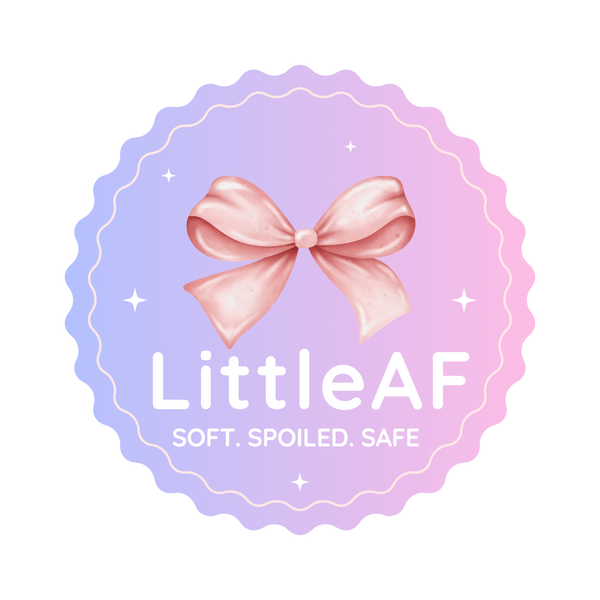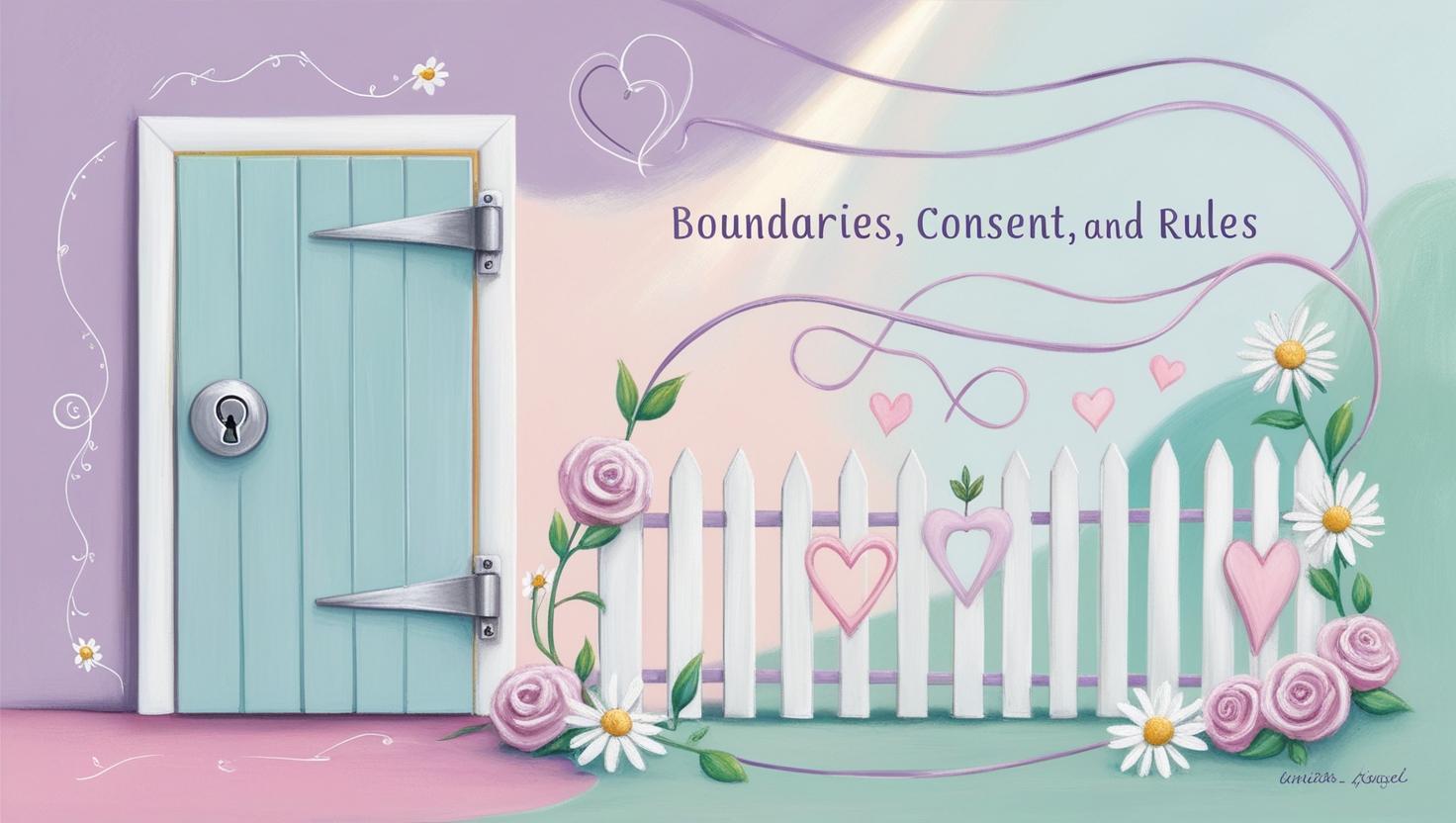Safe Space Tips
This is one area we take very seriously. No games or fun here. Strictly business. Creating a safe space for Littles, Brats, and Caregivers is all about mutual respect, communication, and boundaries. Here are some essential tips for making sure your space is emotionally and mentally safe:
1. Consent is Key
Consent is the cornerstone of any healthy dynamic. Always ensure that you and your partner(s) are in agreement about boundaries, activities, and expectations. These should be discussed, expressed and agreed upon prior to any play, or contact. Anyone who questions your boundaries or tries to move them, is a red flag and you should avoid at all costs. Trust is paramount and if you cannot trust your partner, you can't be vulnerable with them.
Consent is given freely, enthusiastically, and can be withdrawn at any time.
Respecting each other's boundaries helps create a trusting and supportive environment where both parties can feel safe and valued.
2. Use Safe Words
Safe words are vital in ensuring that both parties are comfortable and respected throughout their dynamic. These are words that, when said, immediately stop any activity. NO questions asked, without delay! It is an immediate 'STOP'.
Choose a word or signal that is easy to remember and different from any words you would use during play.
Safe words allow for clear communication and ensure that both individuals are comfortable at all times, regardless of the situation. The traffic light system can also work and is what we personally use. Green, all is ok, proceed. Yellow is caution, stay at this level. Red is immediate stop without hesitation.
3. Recognize Red Flags
In any relationship, it's essential to be able to identify red flags that indicate something might not be right. Whether it’s a lack of communication, disrespecting boundaries, or making one partner feel uncomfortable, it’s important to address these issues early.
Red flags are warning signs that something in the relationship dynamic may need to be reassessed or adjusted. If those issues aren't respected and resolved...end the dynamic!
Addressing red flags promptly prevents misunderstandings or harm and ensures that both parties are always on the same page.
4. Communication is Everything
Clear, open, and honest communication is the foundation of any healthy relationship or dynamic. Be sure to talk about your needs, desires, and boundaries regularly.
Have regular check-ins to discuss your dynamic, feelings, and any changes you want to make.
Honest communication ensures that both individuals’ needs are being met and allows for adjustments to be made when necessary.
5. Respect and Trust
Mutual respect and trust are fundamental in creating a safe, nurturing space for both Littles and Caregivers.
Respect each other’s emotions, boundaries, and experiences. Trust is built over time and can be easily broken, so it’s crucial to nurture it.
A relationship built on respect and trust provides a safe environment where both partners can feel emotionally secure and confident in each other.
6. Emotional Safety Matters
While physical safety is important, emotional safety is just as crucial. Ensure that you’re creating an environment where both parties feel heard, valued, and safe to express themselves.
Emotional safety is about creating a space where both individuals can be vulnerable without fear of judgment or harm.
When emotional safety is prioritized, individuals are more likely to thrive in their dynamic, feeling supported and understood.
7. Aftercare is Essential
Aftercare involves activities or words of reassurance after a scene, and it’s an important aspect of ensuring both parties feel emotionally supported. Aftercare needs differ for everyone so it's important that this is discussed in the beginning just like safe words and boundaries. Aftercare expectations should be in place before any play or scene begins.
Aftercare can involve cuddling, talking, offering a warm drink, or simply checking in with each other about how you’re feeling. For us personally, my idea of Aftercare is cuddling on Daddy's chest and being in his arms. I enjoy that softness and closeness with him. He also gets me a glass of water or a cup of herbal tea.
Aftercare helps reinforce emotional safety and creates space for individuals to express how they’re feeling post-dynamic.
Closing Thought:
Creating a safe space is about understanding each other’s needs and respecting the boundaries that come with any dynamic. Whether you’re a Little, Brat, or Caregiver, maintaining trust, respect, and communication will ensure that you create a dynamic that feels safe, secure, and supportive for everyone involved. Don't be afraid to set boundaries and enforce them. Consent and comfort are non-negotiables.

